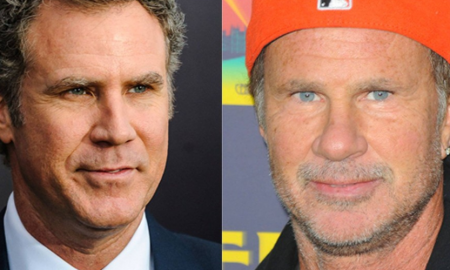
The Untold Story of Lewis Hamilton’s Mental Health Struggles

Lewis Hamilton’s mental health is a topic that has gained attention recently, as the renowned Formula One driver has opened up about his ongoing struggles. Despite his incredible success and seemingly perfect life, Hamilton has revealed the personal challenges he has faced, particularly with mental health. His journey highlights the importance of addressing mental health issues, even for those who appear to have it all.
Facing Challenges Early On
From a young age, Hamilton faced immense pressure, both in the realm of racing and in his personal life. The pressures of competition, combined with the bullying he experienced at school, contributed to feelings of isolation and sadness. Reflecting on his experiences, he candidly acknowledged that depression crept into his life when he was just 13 years old. The combination of racing’s demanding nature and personal struggles created a challenging environment for him.

Instagram | lewis44hamilton._ | Hamilton faced enormous pressure in racing and bullying at school, leading to feelings of isolation and sadness.
He shared that there were “some really tough times” during his twenties when he felt overwhelmed. It was during these moments that the importance of addressing mental health became clear, not just for him but for many others facing similar battles.
The Turning Point
Hamilton’s path toward healing took a significant turn during the COVID-19 pandemic. As the world slowed down, he took the opportunity to reflect on his life and habits. This period of introspection led him to adopt a healthier routine, starting each day with meditation and morning runs. He described these practices as a powerful way to reconnect with himself and manage his mental health better. “I began waking up at 5 a.m. to meditate and then go for a run,” he noted, emphasizing how this routine helped him better understand his inner feelings.
Although the journey was not always easy, Hamilton found value in these practices, stating that it was an effective way to delve into his thoughts and emotions. This newfound clarity has significantly impacted his perspective on racing and life, showcasing the importance of self-care in high-pressure environments.
Seeking Help
While Hamilton’s journey has had its ups and downs, he recognizes the significance of professional support. He revealed that he had spoken to a therapist in the past but found that experience unhelpful. However, he expressed a desire to seek therapy again, indicating the ongoing need for mental health resources and support. Hamilton’s openness about this aspect of the mental health journey serves as a reminder that reaching out for help is a vital step in addressing mental health issues.
The Power of Discussion and Awareness

Instagram | lewishamilton | Lewis Hamilton’s mental health story inspires many to prioritize their own well-being.
Hamilton’s candidness about his struggles plays a crucial role in reducing the stigma surrounding mental health. In a world where discussions about mental well-being are becoming increasingly prevalent, his story emphasizes the necessity for open dialogue. Athletes, often perceived as invincible, face unique pressures, and acknowledging their vulnerabilities can inspire others to confront their own challenges.
Lewis Hamilton’s mental health narrative resonates with many, regardless of profession or background. By sharing his experiences, Hamilton encourages individuals to prioritize their mental well-being, proving that success does not exempt anyone from experiencing mental health challenges.
A Path Toward Healing
As Hamilton continues to navigate the complexities of life both on and off the racetrack, his story serves as an important reminder of the significance of mental health. His commitment to self-care and willingness to share his struggles highlight a growing movement among athletes and public figures to address mental health openly.
In today’s fast-paced world, where the pressure to succeed can be overwhelming, Hamilton’s journey reinforces the notion that taking care of one’s mental health is essential. Through awareness, dialogue, and support, individuals can find strength in their vulnerabilities and pave the way for healing. Ultimately, Lewis Hamilton’s mental health journey is not just about the challenges faced but also about resilience, hope, and the power of seeking help.
More in Mental Health
-
`
Chad Smith and Will Ferrell Drum-Off – A Night of Comedy and Music
The year was 2014. The late-night talk show landscape was abuzz with a brewing battle unlike any other. It wasn’t a...
July 8, 2024 -
`
Can Coughing Cause Back Pain?
Back pain is a common complaint among many individuals, but did you know that a simple action like coughing can exacerbate...
July 5, 2024 -
`
How to Overcome Imposter Syndrome?
Imposter Syndrome is a familiar term many recognize as a psychological state where individuals doubt their accomplishments, fearing that others will...
June 27, 2024 -
`
Which Peptides Are Best for Anti-Aging?
For those seeking to combat the signs of aging and maintain a youthful appearance, the world of skincare can feel overwhelming....
June 18, 2024 -
`
Celebrities with Celiac Disease – Inspirational Stories and Struggles
Celiac disease is a serious condition, and even the rich and famous aren’t immune. Many celebrities have been open about their...
June 10, 2024 -
`
How to Fix Poor Sleep Hygiene for Better Rest
Sleep is a fundamental human need, as crucial for our well-being as a healthy diet and regular exercise. Yet, many people...
June 6, 2024 -
`
5 Easy & Effective Ways of Coping With Depression
Depression is more than just feeling sad or having a bad day. It is a pervasive mental health condition that affects...
May 30, 2024 -
`
Top 10 Practical 60th Birthday Ideas For Everyone
Turning 60 is a milestone worth celebrating! Whether you are planning your own bash or organizing a celebration for a loved...
May 24, 2024 -
`
What is the Meaning of Angelina Jolie’s Back Tattoo? Explore
If you have ever caught a glimpse of Angelina Jolie’s back tattoo, you might have wondered, “What is the story behind...
May 17, 2024















You must be logged in to post a comment Login